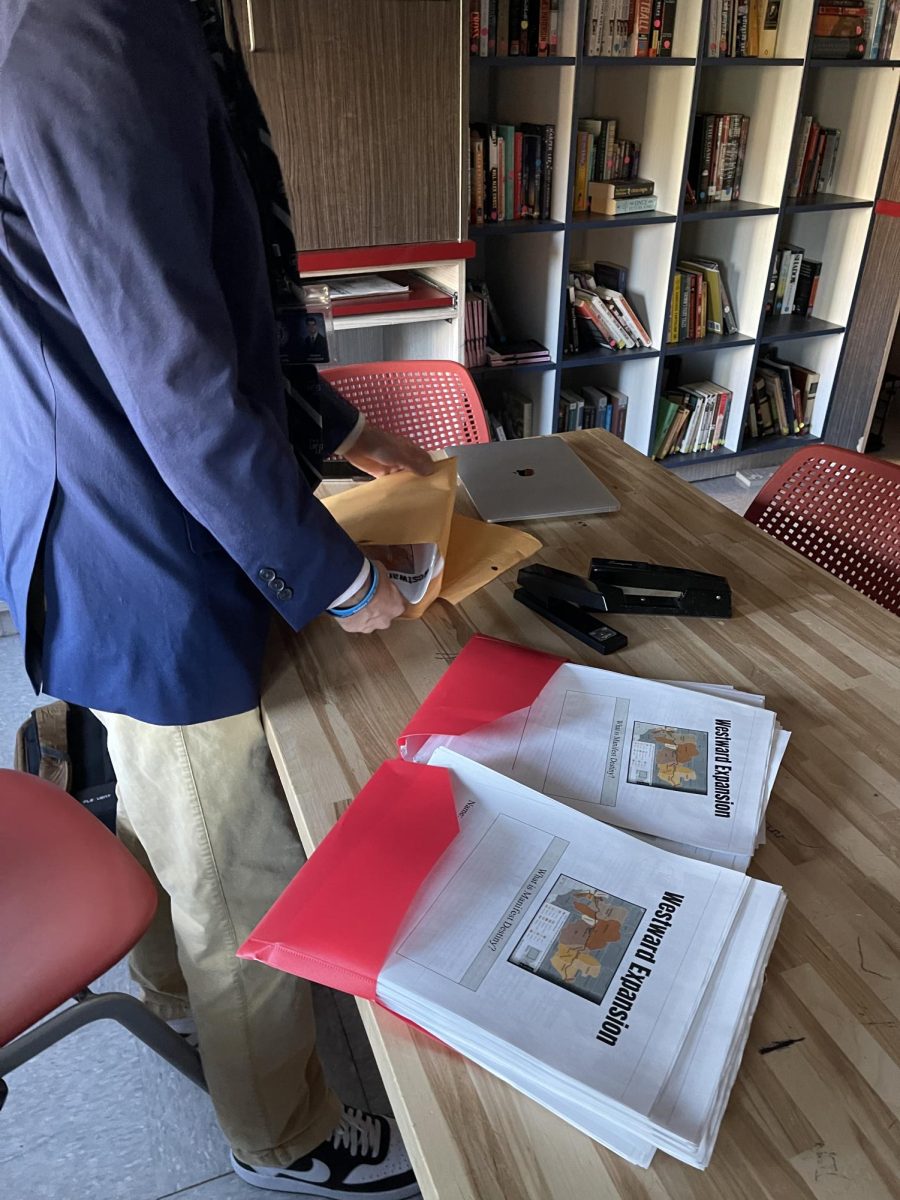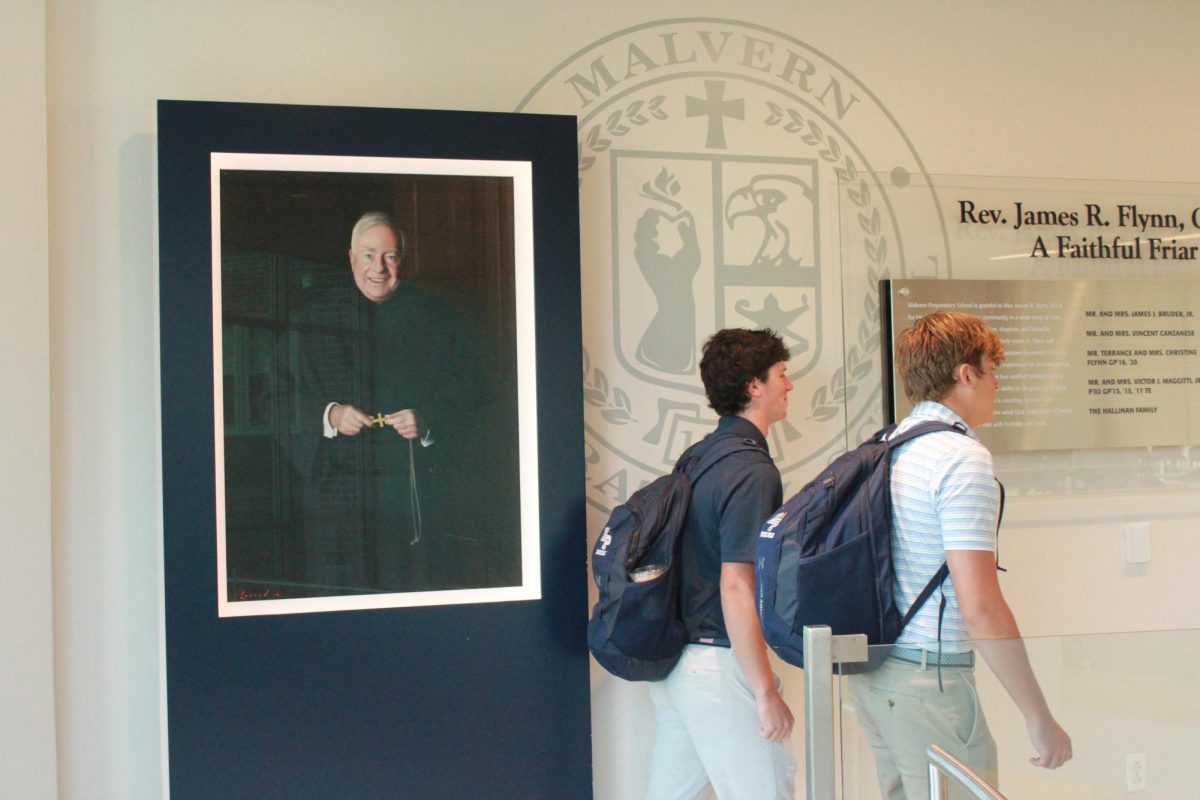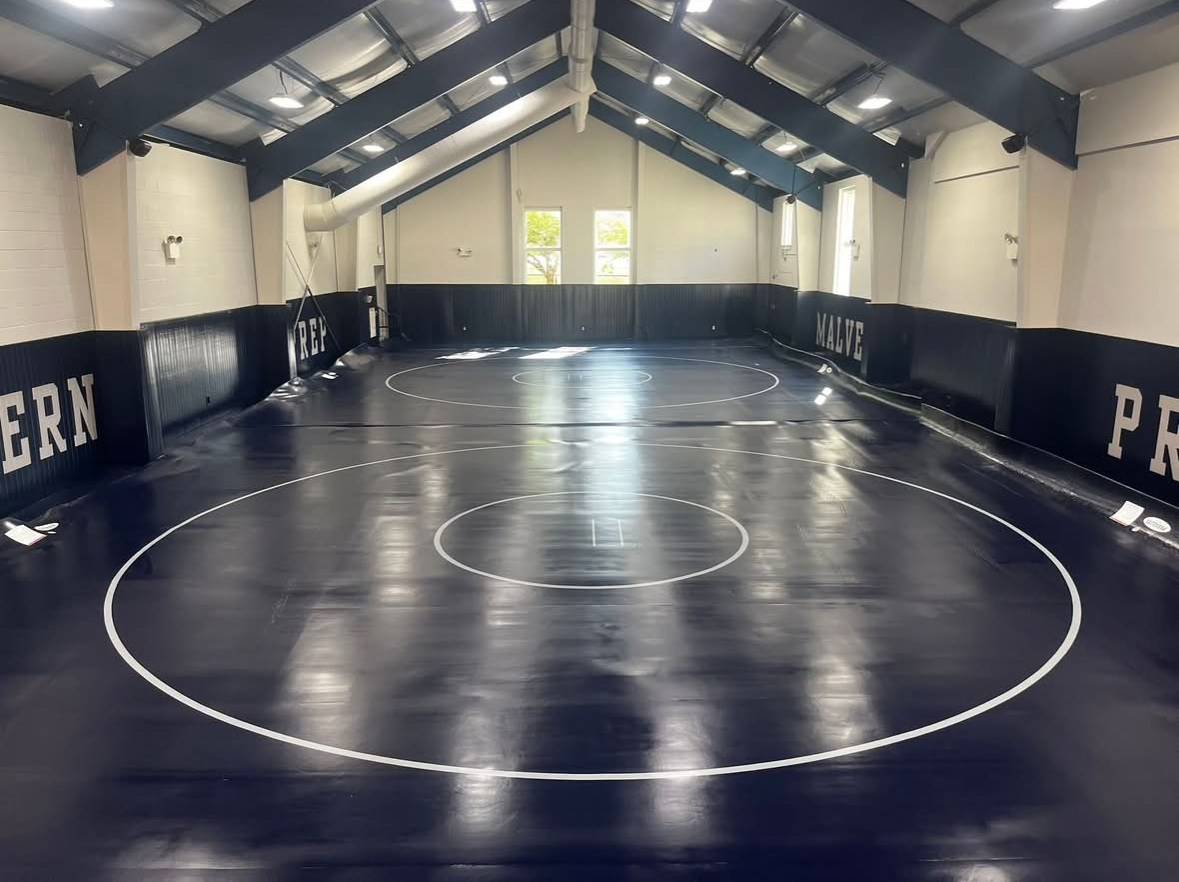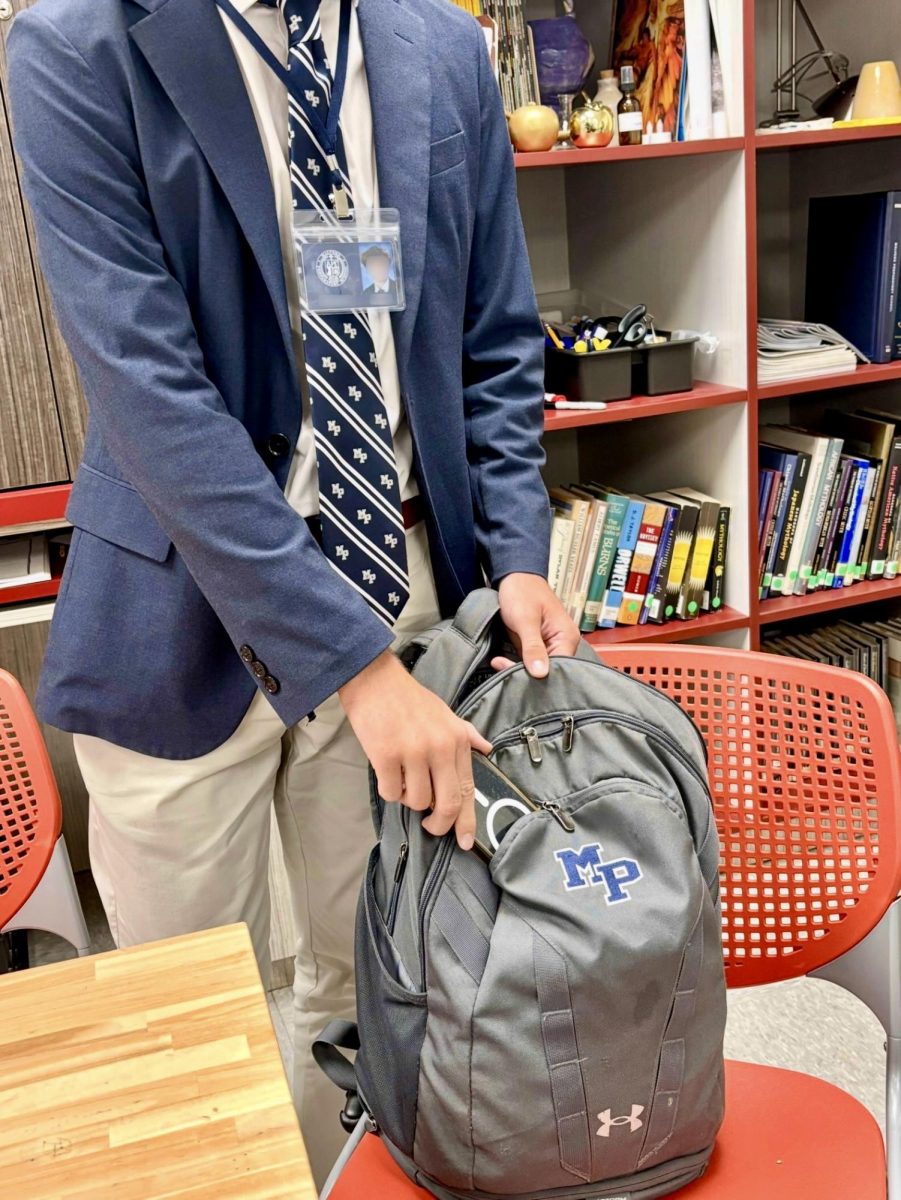At first glance, college admittances this year – especially to the University of Notre Dame – have been lower than in years past.
Recently, rumors have spread throughout the student body that college acceptances have been less prestigious for the Class of 2017 than for the previous senior class.
Well, the belief that acceptances to big name colleges and “Malvern connected” colleges are down from last year is true. Currently, there are no students accepted at the University of Notre Dame whereas last year there were five by this point in the year. Last year eight students were accepted to the University of Pennsylvania. This year, only two.
As Malvern’s college acceptances and statistics from across the country come out, some underclassmen are growing increasingly nervous.
“When you see a really intelligent kid not get into his first choice college, you start to question your chances of getting accepted to your dream college even more,” junior Eric McLaughlin said.
So the question becomes: Are the applications this year not as strong as last year’s or is college just becoming harder to get into?
Director of College Counseling Mr. Ian Harkness addressed this question by slowing the hysteria around their low number of senior class early acceptances this year. “It’s important to remember that waiting doesn’t constitute failure,” he said.
Deferral in early decision or action does not mean a denial. Harkness explained that although getting deferred is disappointing, there may be a silver lining.
“Just because you have to wait until regular decision doesn’t mean you have failed,” Harkness said. “Even though it puts more pressure on you, it opens up even more opportunities. Usually, we get most of our big name acceptances and good news in the spring.”
So the answer to the question above is simply: we have wait until spring and see. Early acceptance numbers change every year and the real tell-tale sign of the strength of a class can not be determined until regular decisions are revealed.
Sometimes, however, that good news doesn’t come for students. They may not get into any of the colleges at the top of their lists. However, that does not constitute failure either, according to Harkness.
“A student with the right work ethic can flourish at any institution he decides to go to,” Harkness said. “Going to an Ivy doesn’t constitute success without hard work and passion about your career.”
According to Harkness, some students on campus are looking optimistically at their college decisions. It is important to not view the word rejection and acceptance as the be-all end-all. Students must reject that there is only one right school for them and accept the fact that they can do great things wherever it is they decide to go.
If you don’t get into your dream college, you are not a failure. It just means that school may not have been the best fit for you after all.
“Of course I was bummed when I didn’t get into Notre Dame,” senior Ryan Franks said. “But for a kid who wants to pursue medicine and get a postgraduate degree, I’m no longer stressing about the prestige of an undergraduate school. Wherever I go, I’m going to work hard and use the school’s resources to prepare myself for the next step.”
Nevertheless, a student still has to go about the process the right way. The college counselors have gotten feedback on Malvern students’ applications from admissions officers at universities. They have digested that feedback and come up with a few suggestions for applying to college.
Harkness said that the first tip is to not make assumptions.
“A student should never assume that a college is too difficult for him to get into,” Harkness said. “On the other hand, it is even more dangerous to think you’re a shoe-in for a college. That is where the application can get sloppy and you can get rejected from a college that may have actually been a great fit for you.”
From Harkness’s experience, the college acceptance process — especially at the more competitive colleges —is never black and white. Different colleges look for different things, and it can be difficult to prepare for the subjectivity of the decision process.
One thing that all schools have in common, however, is that they look at a lot more than just scores, according to Harkness
“There have been a lot of very intelligent students to come through Malvern and they have gone to great schools,” Harkness said. “However, there are many other ways for students with different talents to get into just as great schools.”
While crafting your application, you have to accentuate your strengths and the traits that make you different. It doesn’t have to be confined to achievements in the classroom, according to Harkness.
“It can highlight anything that you are passionate about and have delved deeply into during your high school years,” Harkness said. “We’ve had students whose grades might not have been to the level they needed to be but they were admitted based on other criteria.”
Another tip is to start thinking about the college process long before it’s time to actually apply. Don’t waste opportunities to get involved and begin to think about what it is that can separate you from the pack when it comes time for admissions to make their decision.
“Colleges don’t want to accept a one-dimensional individual,” Harkness said. “It’s important to show your various interests and how you’ve pursued them. By the same token, you can not afford to spread yourself too thin. Don’t join thirty clubs just to put them in your resume. Colleges see right through that.”
In the senior counseling curriculum, students learned how to demonstrate this combination of breadth and depth of interest. They also heard stories about how students were rejected because they didn’t craft their applications in a professional manner. To put it bluntly, they got lazy.
“It is important to not become idle in the application process,” Harkness said. “I know it’s senior year but your work is just beginning. You have to showcase all you have done over your three years in high school, and if you get lazy in doing so, all of that work may have been for nothing.
It’s also important to not become idle after the application process. Colleges are still looking to make sure accepted students are maintaining their grades and that students still being considered for acceptance are continuing to pursue excellence.
There have been instances in the past where Malvern students had their acceptances rescinded due to the infamous senior slide. Those instances are few and far between, but even accepted students realize the importance of finishing the year strong.
“I’m not going to lie. I am definitely more inclined to coast my last few months now that I’m accepted,” senior Nick Gatti said. “That doesn’t at all mean I’m not trying it just means that I’m not pulling my hair out trying to get an A+ in every class. I would rather spend my remaining time making memories with my brothers, not spending hours studying for a math test.”
“Malvern has prepared me well for college and I am excited for the next step,” Gatti said. “I know I can’t completely stop my work ethic but I am willing to trade a slightly lesser grade for those memories with my friends. Next year, I’m going to Chicago and I may never see these guys again.”
For Gatti to get to where he did, he certainly had to put in a lot of hard work. According to Harkness, a lot of that showed when he put together his Northwestern specific application.
The idea of crafting an application is related to another tip from the counseling department. Students at Malvern have a history of applying to a high number of schools and therefore may not have the time to make each application special and personal to the school.
“If a student really has his sights on three or four colleges, he should devote all of his time to those schools,” Harkness said. “When an applicant just throws out an application without putting much thought into it, the schools can see right through it. They usually aren’t very interested in the students that aren’t interested in them.”
It is important to not spread yourself too thin. Don’t prepare for denial. Work hard towards acceptance.
“If you have a dream school in mind, do everything you can to make sure your application is the absolute best it can be,” Harkness said. “You don’t want to look back and say to yourself ‘man, I could’ve done so much more.’ If it’s meant to be, it’s meant to be. If it’s not, it’s not but don’t have any regrets.”













